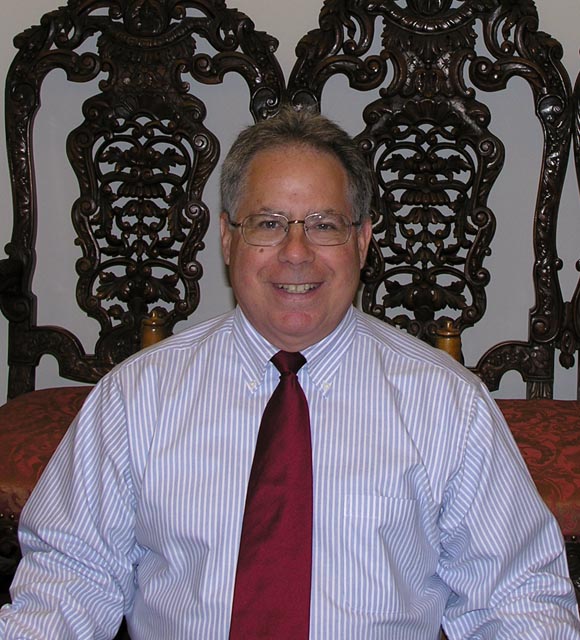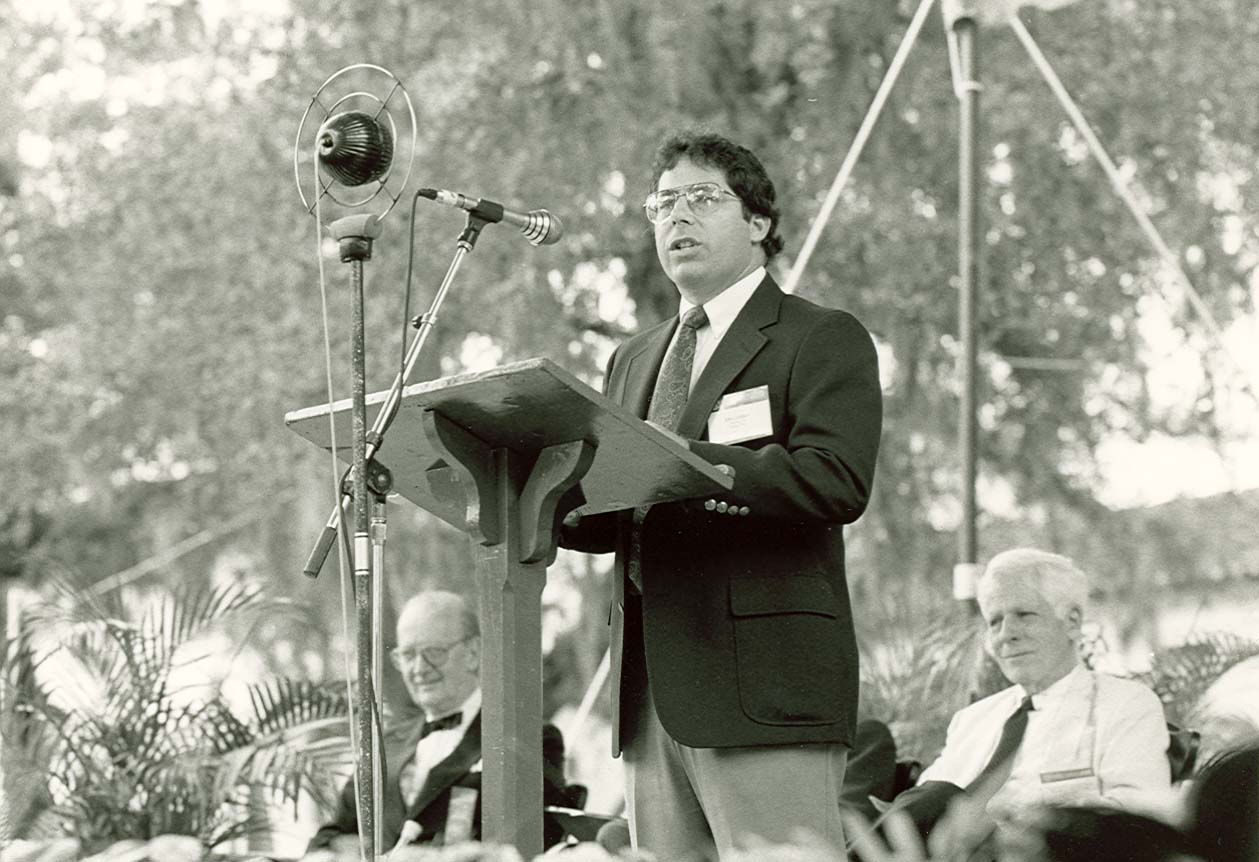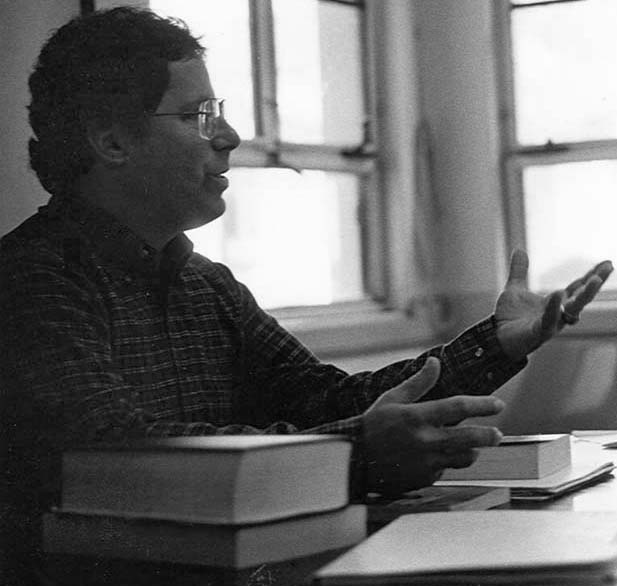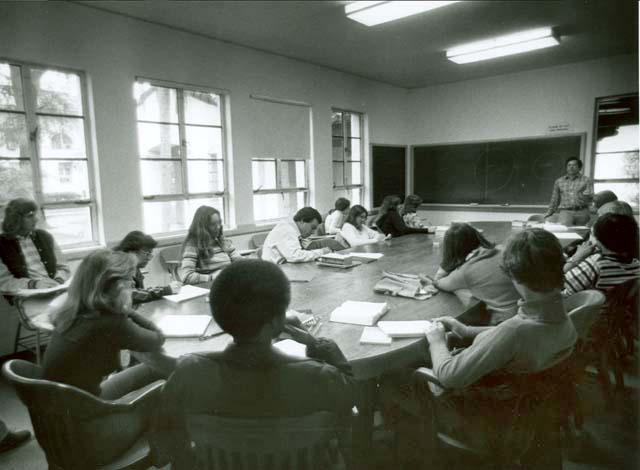Back
Interviews
Next |
Edward
Hoddes Cohen joined the faculty of the English department in
1967 and
has served Rollins College as an active academic and proactive
force in
the community.
Cohen
was born on November 6, 1941, in Washington, District of
Columbia.
He studied at the University of Maryland, where he
received his
bachelor’s degree in English in 1963.
In 1964, Cohen received his M.A. in English from the
University
of Iowa, and in 1967, he received his Ph.D. from the University
of New
Mexico.
Having
joined the Rollins College faculty in 1967, Cohen has taught
courses in
English and also found time to publish articles and papers. He specializes in British and American
Literature Since 1890
and is an expert of Victorian Literature.
Over the years he has taught courses in topics such as
Twentieth
Century British Literature, British Romantics, and American
Realism.
Throughout
his Rollins career, Cohen has been recognized as the Arthur
Vining Davis
Fellow in 1971, the Outstanding Educator in America in 1971 and
1972,
the Henry E. Huntington Library Fellow in 1972, the National
Endowment
for the Humanities Summer Seminar in 1977, the Hugh F. McKean
Honorary
Award in 1979, the American Council on Education Fellow in 1981,
and the
National Humanities Center Fellowship in 1992.
In addition, Cohen was recognized as the William R. Kenan
Jr.
Professor of English. Cohen
has also served as a member of the Victorian Studies
Bibliography
Committee and the editor and compiler of the Victorian
Bibliography,
a member of the MLA Bibliography advisory committee, and a
member
of the Modern Language Association. |
|
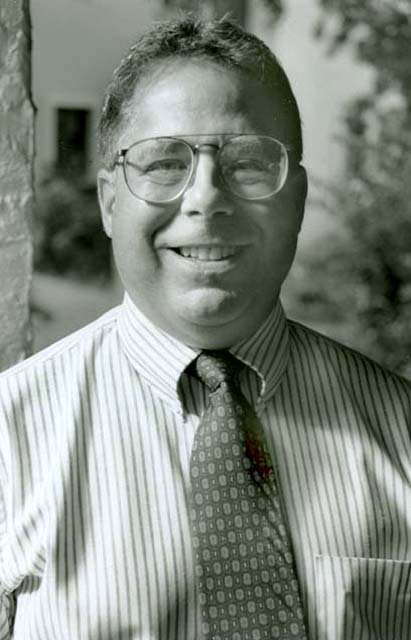
How
were your experiences beginning your career in the teaching
profession?
|
|
"...
And the woman
who was conducting the [teaching] workshop... said, “Now the
first rule to
remember is never embarrass a student in class.”
So I wrote that down. And
then she said, “So the rest you’re pretty much on your own, go
for
it.” And so here I was
sitting with three legal pads and only one comment: Never
embarrass a
student in class..."
-
...I
spent most of my career working on Henley... But
I wrote a book called the Henley Stevenson Quarrel...
Some
biographies written of Stephenson had alluded to the quarrel and
said,
It was Henley’s fault. Some
biographies of Henley had alluded to the quarrel and said, It
was
Stevenson’s fault. But
nobody had said what was the essence of the quarrel.
And here was all of the correspondence; here was a book
(laughs)... that was simply put in front of me...”
-
"...
I think that the
biggest change in Orlando came with Disney.
And at first I thought that it was negative... in a sense
that all of a sudden people asked you for
ID... But of course, as Orlando has
grown, so have all of the
opportunities around here for culture, for art galleries, and
for
restaurants and things like that..."
-
"...I
think most faculty members love Fox Day, but of course we
wouldn’t be caught dead saying that...
But when we didn’t have Fox Day, we lost something.
It was almost as if we couldn’t have a day that wasn’t
business as usual... So bringing back
Fox Day was great, and I think that students still look forward
to it,
faculty still look forward to it. Again,
it’s one of those traditions that is unique to Rollins, and
there’s
nothing wrong with just sleeping in, or going to the beach, or
taking a
deep breath and relaxing for a day...
It taught us
something, taught me something, about Rollins and tradition..."
-
"But the reason that the course was fun was interacting
with my
fellow faculty members... each week, one of us would lecture or conduct a course.
It was a large class... and then we would divide into
small
sessions... it was hard work, but it was lots of fun and
we had lots of laughs in that class...I think that working with
colleagues on a course, doing an
interdisciplinary approach and doing the collaborative course,
that was
terrific."
(Back
to Top) |



